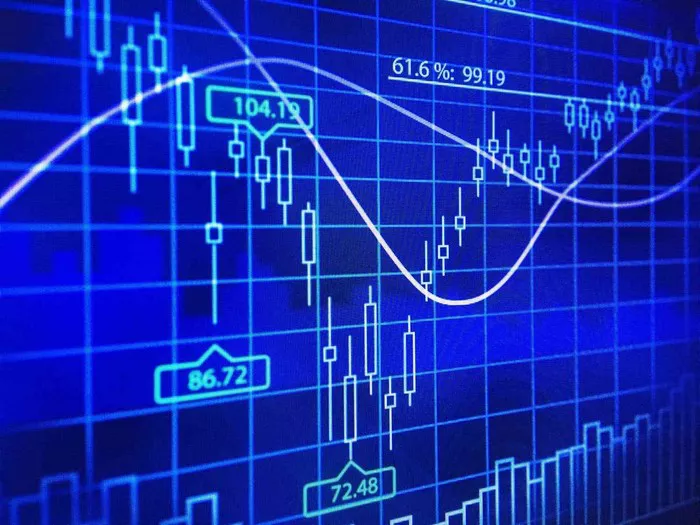Futures markets are dynamic arenas where a diverse array of participants engage in buying and selling contracts, seeking to manage risk, speculate on price movements, and capitalize on market opportunities. The question of who buys futures contracts unveils a complex web of actors ranging from hedgers and speculators to institutional investors and individual traders. In this comprehensive exploration, we unravel the dynamics of futures markets by examining the motivations and strategies of the key players who participate in buying futures contracts.
1. Hedgers: Managing Risk in Uncertain Markets
Hedgers form a crucial segment of futures market participants, utilizing futures contracts to manage and mitigate risks associated with price fluctuations in underlying assets. These risk-averse players include farmers, manufacturers, and other businesses that rely on commodities or financial instruments in their operations.
For example, a wheat farmer concerned about potential declines in wheat prices can use futures contracts to lock in a predetermined selling price for their crop. By doing so, the farmer protects against the risk of a price drop before the harvest. Similarly, airlines may buy futures contracts for crude oil to hedge against the volatility of fuel prices, ensuring a more predictable cost structure for their operations.
Hedgers aim to secure a known future price for an asset, thereby safeguarding themselves against adverse market movements. The ability to hedge with futures contracts empowers businesses to plan and budget more effectively, reducing the impact of price volatility on their bottom line.
See Also: What is the disadvantage of trading futures?
2. Speculators: Capitalizing on Market Movements
Speculators are a distinct group of futures market participants who buy and sell contracts with the primary goal of profiting from anticipated price movements. Unlike hedgers, speculators do not have a direct interest in the underlying asset but seek to capitalize on market trends and fluctuations.
Individual traders, institutional investors, and hedge funds often fall into the category of speculators. These market participants analyze market conditions, economic indicators, and other factors to make informed bets on the future direction of asset prices. If a speculator anticipates an increase in the price of a particular commodity or financial instrument, they may buy futures contracts with the intention of selling them later at a higher price.
While speculators are often associated with higher risk due to their profit-driven motivations, their presence in futures markets contributes to liquidity and price discovery. The interplay between hedgers and speculators helps create efficient markets, allowing for smoother transactions and accurate reflection of market sentiments.
3. Institutional Investors: Portfolio Diversification and Risk Management
Institutional investors, including pension funds, mutual funds, and other large investment entities, play a significant role in buying futures contracts as part of their broader investment strategies. These sophisticated participants engage in futures markets to achieve portfolio diversification, manage risk, and enhance overall investment performance.
For institutional investors, futures contracts offer a strategic avenue for gaining exposure to various asset classes, including commodities, fixed-income securities, and equity indices. The use of futures allows these investors to implement tactical asset allocation strategies, adjusting their portfolios based on macroeconomic trends and market expectations.
Additionally, institutional investors employ futures contracts as a risk management tool. By entering into futures positions, these entities can hedge against potential losses in their investment portfolios due to adverse market movements. The ability to mitigate risk through futures contracts enhances the stability and resilience of institutional investment strategies.
4. Individual Traders: Navigating Market Opportunities
Individual traders, ranging from retail investors to high-net-worth individuals, actively participate in buying futures contracts to capitalize on short-term market opportunities. The accessibility of futures markets through online trading platforms has democratized access, allowing individual traders to engage in sophisticated trading strategies.
Individual traders may buy futures contracts to speculate on the price movements of commodities, currencies, or financial indices. They leverage technical and fundamental analysis, as well as various trading strategies, to make informed decisions. Additionally, individual traders may use futures contracts to hedge against specific risks in their investment portfolios.
The flexibility of futures markets appeals to individual traders seeking to diversify their investment holdings and capitalize on short-term market trends. While individual traders may have varying risk appetites and investment goals, their active participation contributes to the overall liquidity and vibrancy of futures markets.
5. Market Makers: Facilitating Liquidity and Efficiency
Market makers are financial institutions or individuals who facilitate trading by providing liquidity in the futures markets. These participants play a crucial role in ensuring that there is a continuous and orderly flow of buying and selling activity. Market makers accomplish this by quoting bid and ask prices for futures contracts, narrowing the spread, and stepping in to buy or sell when needed.
By actively participating in buying and selling contracts, market makers contribute to market efficiency and help maintain tight bid-ask spreads. Their role is particularly vital in ensuring that there is a readily available market for futures contracts, enhancing the overall functioning of the marketplace.
Market makers may use various strategies, including arbitrage and hedging, to manage their positions and minimize risk exposure. Their ability to provide liquidity attracts other market participants and fosters a more efficient and robust futures trading environment.
Conclusion
In conclusion, the diverse array of participants who buy futures contracts in financial markets contributes to the depth, liquidity, and efficiency of these markets. Hedgers, speculators, institutional investors, individual traders, and market makers each bring unique perspectives, strategies, and motivations to the table.
Understanding the dynamics of futures market participants is essential for investors seeking to navigate these complex financial landscapes. Whether managing risk, seeking profit opportunities, or enhancing portfolio diversification, the motivations of those who buy futures contracts collectively shape the ever-evolving nature of futures markets. By acknowledging the roles and contributions of these diverse participants, one gains insight into the multifaceted world of futures trading and its impact on global financial ecosystems.


